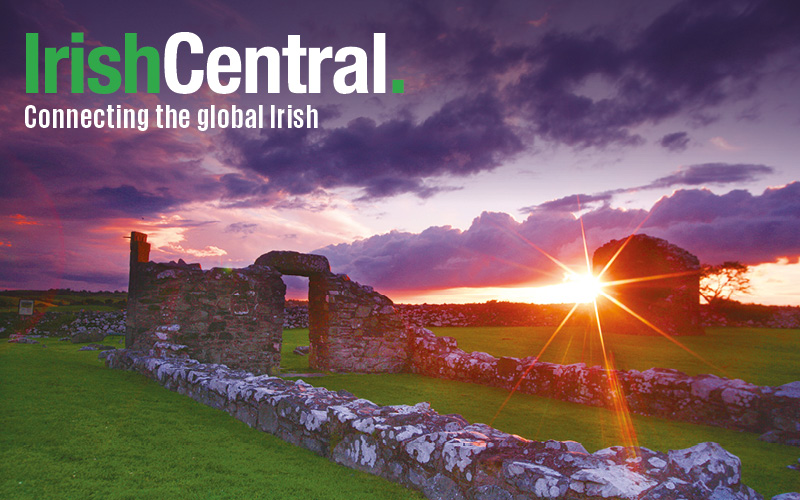At the age of 10 in 1968, Brendan O'Leary was the only Catholic boy at the all-Protestant St. MacNissi's College in Northern Ireland. That meant he had to learn how to persuade the boys lining up to hammer him not to bother. At such a young age O'Leary was already becoming adept at mediating tense ethnic conflicts, learning his craft in one of the most divided communities in the world. Although he was born in Cork, O'Leary (whose father worked for the United Nations) was brought up in Nigeria, Sudan, Uganda and eventually Northern Ireland, where he attended primary school in Cloughey and Carrickfergus. In Cork, where his parents briefly returned after years spent in Africa, O'Leary had been around long enough to discover he was an Irish boy with an English accent, the very definition of a social outcast. In Northern Ireland he was the British sounding boy with an unmistakably Fenian name, which was unheard of at the time. So between dodging the students who were out to get him and working closely with a kindly professor who spotted his academic promise early on, O'Leary had his hands full right from the start. O'Leary's unusual border hopping background also gave him unique insights into the way battles over cultural identity are fought and resolved. At St. MacNissi's he was a southerner who became a northerner, which meant he regularly noticed things that others overlooked. "Because of my background I grew up thinking that ethnic conflict was completely normal," O'Leary told the Irish Voice during a recent interview. His parents were liberal and they decided to send him to the nearest school, which just happened to be Protestant. "Being the only Catholic in the entire school had one beneficial side effect, I'm now very good at self-defense," he says. "But I remember the first day when the schoolmaster took our name and recorded our religious identities. We had to do that because of differences among Protestant sects as to who could and could not receive particular kinds of bible instruction. "When they came to me they asked my name. I said Brendan O'Leary and there was a complete hush. Then he asked me what my religion was and I said, 'I don't know but I think I'm a Roman Catholic.' There was a queue of small boys who wanted to have a fight with me after that." At St. MacNissi's O'Leary had the good fortune to meet with fellow student John McGarry, who quickly became a friend and ally. McGarry became a regular co-author with O'Leary on several important political science books, the majority of which focus on issues of national and ethnic conflict. At the very place where he came face to face with ethnic strife, he also found the first strands of a political philosophy that would help lead to its conclusion. "I often say that that school produced me and about 15 convicted members of the Ulster Volunteer Force," O'Leary says. After grammar school O'Leary studied at Oxford University and then the London School of Economics, eventually becoming a political advisor to the British Labor Shadow Cabinet on Northern Ireland. O'Leary co-authored a report with John McGarry called "Policing Northern Ireland: Proposals for a New Start" which strongly influenced the work of the Independent Commission on Policing in Northern Ireland. O'Leary subsequently played a significant role in the public debate over the implementation of the report. Considering his influence and experience, it's no surprise his resume clocks in at an impressive 37 pages. Although O'Leary was impressed by his father's work for the United Nations, he ultimately departed from some aspects of his political philosophy. "While I share his values my childhood experiences contributed to me thinking that western liberal values are deeply nave ways at looking at practical conflict resolution," he feels. "In many conflict situations identities are very hard and not as malleable and flexible as many liberal and social cosmopolitans would like to believe. In the long run intellectually I think I benefited from the clash between my father's values and the realities of the world." In his new book, "How to Get Out of Iraq With Integrity" (University of Pennsylvania Press) O'Leary draws on his extensive experience in Iraq arguing that, amid all the chaos and mismanagement, the outstanding achievement of post-Saddam Iraq is its 2005 constitution. Hammered out between Iraqis without dictation by the Americans, in O'Leary's view it represents the only basis for an honorable American withdrawal - as long as the U.S., Iraq's neighbors and the Iraqis themselves treat it as the template for a stable future, which O'Leary convincingly argues that it is. "I think the parallels between Northern Ireland and Iraq are in some senses striking. Both states came into existence as a result of British decision-making," O'Leary says. "In each case they came into existence with one significant block of the population opposed to the very formation of the state. Kurds were incorporated against their will, Arabs were much happier with the formation. "In both cases there is a general view that divisions within the communities were exacerbated by deliberate British strategy. I think there's some truth in this, but not a great deal. The dominance in the Arab elite knew that democracy would mean their removal from political dominance." Although O'Leary acknowledges the importance of religious sectarianism in Northern Ireland, for him the fundamental difference there is rooted in ethnicity - the two groups are different descent groups - and in nationality. Neither group is trying to entrench in the state their particular version of religious dogma. That is not the case in Iraq, however. The division between the dominant faith traditions are sectarian, and also centuries old. "The fact that you have a deep cleavage between the largest community and then also a national question that involves the Kurds means that the politics of Iraq are triangular," O'Leary feels. Releasing his book at a time when the U.S. military are already scaling back operations in Iraq - coupled with the economic shock waves that have accompanied the waning days of the Bush administration - O'Leary says, "I have been thinking about this question since my involvement in Iraq began in 2002, when I was invited to become an advisor to the Kurdistan regional government. I believed there could a negotiated constitution that would make Iraq federal, and that would give the Kurds the substance of domestic independence whilst preserving the territorial integrity of Iraq. "Irrespective of how you feel about the ethics of the original intervention in Iraq, what's the mechanism of withdrawal? Quite apart from the deep and horrific violence between Arab factions and militias, there aren't very many successful examples of an exit where the remaining polity functions and works well. "I had to think all that through, and roughly speaking my conclusion is that Iraq can function along the lines of its constitution if the internal balance of power can be preserved. And secondly, if that internal balance of power can be protected." American policy makers didn't think though that the invasion and democratization would end the dominance of Sunni Arabs, O'Leary says. They immediately precipitated a series of Sunni Arab insurrections against the American led occupation. U.S. strategy became how do we appease the sentiment of the Sunni Arabs, who are not in the least bit inclined to power sharing or federal solutions, simply because a high proportion of their elite think they are the best. "They have outlooks on the Shia Arabs that are basically comparable to the way some British elites thought about the Irish in the 19th century," O'Leary adds. "U.S. policy since 2005 has been to appease Sunni Arab sentiment as much as possible. In 2006 and 2007 what produced a turnaround in terms of security was that Sunni Arabs decided to align with the U.S. against al-Qaeda activities. "In effect they're hoping the Americans will leverage them into a restoration of their dominance. But I think that it would be a catastrophe. It would guarantee perpetual conflict. "What we have at the moment is a lucky accident - we have an Iraq where each of the three groups has their own security and control over their areas and institutions. In other words, we have the conditions necessary to make an internal confederation work with the balance of power. "In my view the wise policy of America on exit is to deepen and encourage federalism. Most people say America shouldn't leave Iraq until there is a strong government in Baghdad. I say on the contrary. It's better to leave before any Baghdad government becomes too strong. "The history of Iraq under strong governments is catastrophic. It's better to leave when no one group is dominant because that will encourage whoever is in power to try and share it with the others." A comprehensive dZtente with Iran would also be a necessary part of the exit strategy, O'Leary argues. They are fearful that the Americans will target them. Consequently there are possibilities for a constructive engagement with Iran. All that is required is regime recognition, which Iran wants, and the recognition is that it is the key player in the region. A constructive American withdrawal could stabilize Iraq and make it unlikely that Iran would be destructively meddlesome in a post American Iraq.




Comments